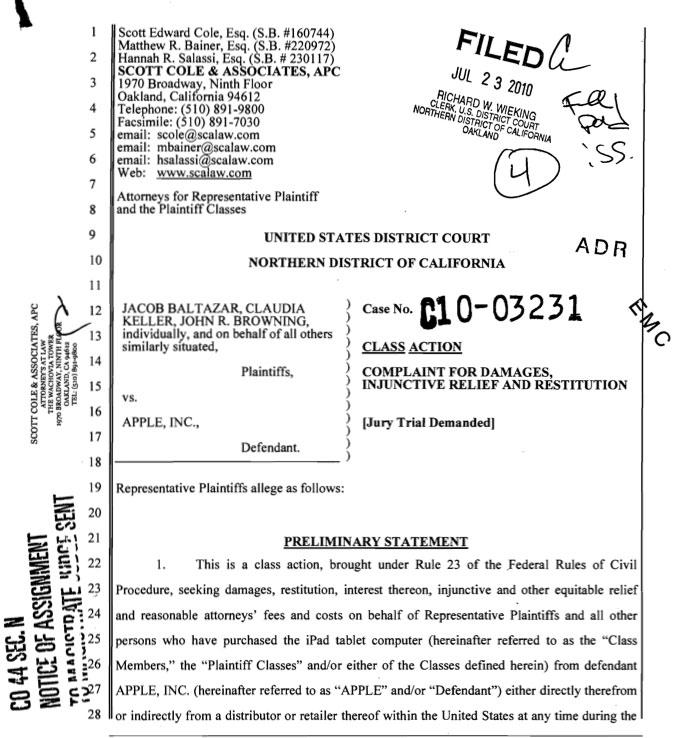New lawsuit claims Apple's iPad overheats easily in direct sunlight
Filed in a U.S. District Court in the North District of California last week, the lawsuit accuses Apple of falsely advertising the iPad as a reading device when, the defendants claim, it cannot be used outdoors due to overheating.
"Using the iPad is not 'just like a reading book' at all since books do not close when the reader is enjoying them in the sunlight or in other normal environmental environments," the complaint reads. It alleges that Apple's iPad advertising, which claims that reading on the iPad is "just like reading a book," is false.
The suit alleges that complaints about overheating of the iPad "have become prevalent across the Internet and within technology circles." Despite these complaints, it says, Apple has taken no action to warn consumers about use of the iPad outdoors.
"The iPad overheats so quickly under common weather conditions that it does not function for prolonged use either indoors, or in many other warm conditions, for a variety of common uses such as, but not necessarily limited to, an e-reader, e-mail tool, Web browser and/or game/entertainment unit," it states.
The plaintiffs, Jacob Baltazar, Claudia Keller and John R. Browning, have filed a class-action lawsuit against Apple. They have asserted that all consumers in the U.S. who have purchased an iPad are parties in the suit.
Apple is accused of numerous misdeeds, including fraud, negligent misrepresentation, deceptive advertising practices, intentional misrepresentation, breach of warranty, and unfair business practices under the Unfair Competition Act.
The case asks that a jury award the plaintiffs damages, and also assign punitive damages to Apple to "punish" the company and "deter others from engaging from similar misconduct in the future." It was filed on July 23 by attorney Scott Edward Cole with Scott Cole & Associates.
 Neil Hughes
Neil Hughes











 Mike Wuerthele
Mike Wuerthele

 Malcolm Owen
Malcolm Owen
 Chip Loder
Chip Loder

 William Gallagher
William Gallagher
 Christine McKee
Christine McKee
 Michael Stroup
Michael Stroup







118 Comments
I have a long list of things that overheat in direct sunlight if this wins. Living in Florida I know about such things
"The iPad overheats so quickly under common weather conditions that it does not function for prolonged use either indoors, or in many other warm conditions, for a variety of common uses such as, but not necessarily limited to, an e-reader, e-mail tool, Web browser and/or game/entertainment unit," it states.
Maybe they need to learn how to ready before they start using the iPad as an eBook reader.
Operating temperature: 32° to 95° F (0° to 35° C)
Nonoperating temperature: -4° to 113° F (-20° to 45° C)
Relative humidity: 5% to 95% noncondensing
Maximum operating altitude: 10,000 feet (3000 m)
What's wrong with sitting in the shade or in the alternative place your iPad on a large block of ice on your lap while sitting in the sun.
Maybe Apple will be sued for skin cancer since the iPad encourages people to sit in the sun
I like lawsuits like this, no data to say what the temp it was outside how long before it turns off, they just say fast, and over heats what exactly does they mean. I think if you look up the operating spec of the ipad it probably says 35C or 95F so putting anything in direct sun light on a normal day over time that item will get hotter then 95 F, the dash of car in AZ on a summer day gets to 85C.
Seriously?